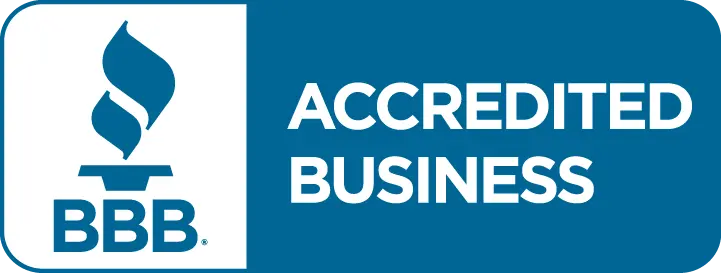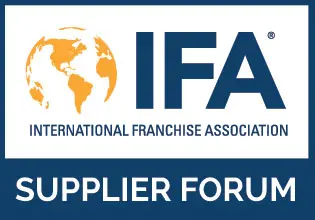Blog
Our blog offers important resources, helpful articles, and practical ideas on the human resources topics that matter to you.
Our blog offers important resources, helpful articles, and practical ideas on the human resources topics that matter to you.
Home / Media / Blog / December Legal Updates
INFINITI HR is happy to provide Monthly State Labor Law Updates as a service to our subscribers. These briefs provide a general description and are not meant to be all-inclusive of compliance requirements. This list is not inclusive of all legislative changes for employers across the U.S. Changes may have been addressed in previous updates, which can be accessed from our blog.
Employers are encouraged to work with their Inspiring HR Consultant before making policy changes to capture the full requirements of these laws.
Some of the notable recent and upcoming state changes in this issue are as follows:
California Pay Transparency and Reporting Updates – effective January 1, 2023
Pay Ranges – Starting in 2023, all employers are required, upon request, to share pay ranges with current employees for their positions. Records must also now be kept for each employee on their positions held and corresponding wage rates for the entire period of employment plus three years post-employment.
Job postings – Employers with 15 or more employees must include pay ranges on all job postings and advertisements.
Pay Data – As part of the pay data reporting process already in place, employers with 100 or more employees will be required to provide the mean and median hourly pay for each combination of demographic associated with every position reported.
If an employer hires 100 or more employees through labor contractors, a separate report will be required.
Bereavement Leave – effective January 1, 2023
Five days of bereavement leave will be required for California employers with five or more employees. It must be offered to any employee with 30 days of service upon request for the death of a family member.
The five days of leave do not have to be consecutive, but most be completed within three months of a family member’s death. At the employer’s discretion, leave may be paid or unpaid, and employees may use PTO, Vacation or Sick Leave to supplement unpaid bereavement leave.
California Family Rights Act and Paid Sick Leave Updates – effective January 1, 2023
Effective January 1, 2023, employers must add a “designated person” to the list of family members to their policies for:
A “designated person” for Paid Sick Leave is defined as “a person identified by the employee at the time the employee requests paid sick days. A “designated person” for the California Family Rights Act is defined as “any individual related by blood or whose association with the employee is the equivalent of a family relationship.”
An employer may limit employees to one designated person per 12-month period.
Reproductive Decision-Making Protection – effective January 1, 2023
Starting in 2023, “reproductive decision making” will be considered protected activity and prohibits employers from:
“Reproductive Decision Making” under this law also includes any decision to use or access a particular drug, device, product, or medical service for reproductive health.
Anti-Retaliation during Emergencies – effective January 1, 2023
Starting in 2023, it will be unlawful for employers to take adverse action or retaliate against an employee for refusing to report to their workplace during “emergency conditions” if they have a reasonable belief that the workplace is unsafe.
An emergency condition is defined by the following situations:
For purposes of this law, a health pandemic does not meet the definition of “emergency condition.”
Wage and Hour Enforcement Updates – Effective January 1, 2023
Colorado recently revised its statutes regarding “wage theft” enforcement procedures and remedies for violations of wage payment laws. While criminal liability for failure to furnish information requested by the CO Division of Labor Standards and Statistics (DLSS) has been eliminated, non-compliance penalties of no less than $50 per day have been implemented.
While the bill driving these changes addresses other aspects of Wage & Hour enforcement and employer obligations, the following items are particularly important to note:
We Recommend:
Work closely with your payroll team to ensure wages are paid accurately and promptly to prevent significant liability for failure to pay Colorado wages in a timely and accurate manner and ensure that stakeholders understand that there is now a higher financial and business liability when presented with time sensitive written demands for payment of wages determined to be owed.
On the Horizon: Retirement plan requirement – Effective January 1, 2025
Beginning in 2025, employers with five or more employees in Delaware that have been in business for at least six months must offer a retirement plan to all employees. We will provide more information about this requirement as it becomes available.
On the Horizon: Paid Family Leave requirement – Effective January 1, 2026
Beginning in 2026, employees in Delaware will be eligible for up to 12 weeks of paid family leave per year. This program will be in place by 2025 and benefits will begin in 2026.
Reasonable Accommodation Updates – Effective October 1, 2022
Under Maryland House Bill 78, all employers must make accommodations for all applicants in the job selection process, regardless of if the applicant is qualified for the position.
Retirement Plan Requirements & MarylandSaves– Effective September 15, 2022
All employers with automated payroll are required to offer a retirement plan unless they have been in business for less than two years. Employers are not required to match employee contributions and if a plan is already in place, can certify they are already in compliance. Employers without a plan can now enroll in MD Saves, a state-run low-cost retirement plan.
Expanded Harassment Definition – Effective October 1, 2022
The definition of harassment has been amended to remove references to severe and pervasive conduct. The revised definition includes offensive behaviors if they are a term or condition of an individual’s employment; if the conduct is part of employment decisions; or if the conduct creates an environment a reasonable person would perceive as abusive or hostile.
State Paid Leave Benefit – Effective January 1, 2025
Maryland passed the “Time to Care Act of 2022,” establishing a state paid leave benefit to run concurrently with Federal Family and Medical Leave Act (FMLA) leave, if applicable. Once in effect, employees will have the option to request payment for part of their FMLA leave. If the employer is not subject to FMLA, employees will be eligible for paid benefits if they have worked 680 hours over the 12 months prior to the leave request.
Recreational Marijuana – Effective July 2023
The use and possession of recreational marijuana will become legal; however, employers may prohibit employees from possessing marijuana on company property, as well as being under the influence while at work.
Parking benefits update – Effective January 15, 2023
Employers with at least 20 employees in DC that own or lease parking spaces as a parking benefit must offer alternatives to that benefit in the form of a clean air transportation benefit, developing a transportation demand management plan, and/or pay a clean air compliance fee. Employers must report how they are complying with this requirement by January 15, 2023, and every two years thereafter.
Gradual phase out of tip credit – Effective January 1, 2023
Voters in DC approved a gradual phase out of the tip credit, meaning tipped employees will be paid at the regular minimum wage by 2027. The minimum wage for tipped employees increases as follows:
January 1, 2023: $6.00 per hour
July 1, 2023: $8.00 per hour
July 1, 2024: $10.00 per hour
July 1, 2025: $12.00 per hour
July 1, 2026: $14.00 per hour
July 1, 2027: $16.10 per hour
Interested in other current employment trends? Click the link to view the recent blog: Why It’s Time to Redraw Your Leadership Boundaries or check back for more on human resources, payroll, insurance, and benefits.
This article does not constitute legal advice, and there are subtle variations in employment law as it pertains to this topic, depending on where your business operates. It is strongly suggested that you seek consultation or legal counsel before making policy decisions.
Join the INFINITI HR family! Subscribe to our newsletter and get the latest HR news and tips.
INFINITI HR helps companies reduce costs by managing human resource functions while allowing businesses to focus on their core operations that impact profitability. Our platform provides full regulatory compliance management, on-demand HR guidance, real-time payroll /tax filing, POS integration and access into industry leading True-Group master policies for workers’ compensation, employment practices liability insurance, and other operational business coverages.
Toll free: 866-552-6360






